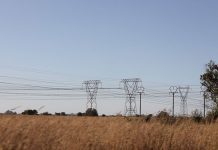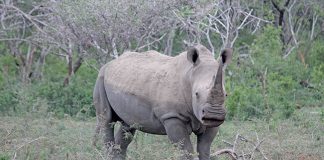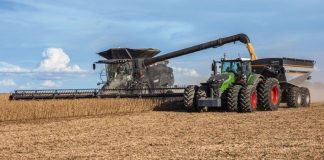The Department of Agriculture, Forestry and Fisheries (DAFF) recently presented spending reports on some of its main farmer support programmes to parliament’s Portfolio Committee on Agriculture, Forestry and Fisheries. But the members of the committee told the department it wasn’t solely a matter of how much money had been spent. Have any meaningful results been achieved?
MAFISA
Supported by the government, the Micro Agricultural Financial Institutions of South Africa (MAFISA) is supposed to provide financial services to smallholder farmers. According to DAFF, MAFISA funds are allocated through intermediaries. It charges 8% interest per year, 7% of which is kept as payment for its services. The intermediaries were chosen to represent certain provinces or focus areas.
For example, Kaap-Agri covers all agricultural activities in the Western Cape, while the National Emergent Red Meat Producers Organisation (Nerpo) serves as the intermediary for SA’s livestock farmers. Since 2009, loans of about R500 million have been approved and R320 million has been transferred, said DAFF. But in many cases the repayment rate has been slow.
In the case of livestock projects, farmers require a longer time before they start earning an income from livestock sales.
The situation is similar with sugar cane. Peulwana Agricultural Financial Services, which acts as intermediary for sugar cane farmers in KwaZulu-Natal, has distributed more than R25 million over the past three years. Yet it’s only recovered around R9 million.
According to DAFF, Peulwana says this is because sugar cane can take up to 24 months to mature. In Limpopo, meanwhile, Hlanganani Farming Finance has also struggled to recover funds. It has overseen the disbursement of more than R20 million to small-scale vegetable and poultry farmers in the province, but so far only R1,4 million has been repaid. As a result, Hlanganani has asked to withdraw from MAFISA, said the department.
“I get the impression that the department has absolutely no control over what is happening with the money being disbursed,” said committee member DA MP Annette Steyn. DAFF admitted that the monitoring of the intermediaries needs to be improved.
One DAFF representative also said that “high staff turnovers and mergers between some of the intermediaries have affected the performance and capacity of the intermediaries.” “The department has made a collective decision that we need to do a complete evaluation of MAFISA,” said Sipho Ntombela, the acting director-general of DAFF.
CASP
According to the department’s report on spending related to the Comprehensive Agricultural Support Programme (CASP), just over R4,4 billion has been allocated to it since 2004. Of this, R3,7 billion had been spent to create almost 350 000 jobs.
In the 2011/2012 financial year, roughly R1 billion was allocated to CASP, and R672 million of this has been spent by the provinces so far.
The members of the portfolio committee said they were unimpressed by the numbers quoted. COPE-MP Nqaba Banga said he wasn’t convinced that the reports given to the committee reflect what’s actually happening on the ground. “How many of the projects receiving support have actually been successful? Are these projects sustainable?” asked DA MP Pieter van Dalen.
He said DAFF should evaluate whether or not it’s giving support to small-scale farmers who will reinvest their profits to grow their businesses. Government cannot support small-scale farmers indefinitely, he said.
Adding to this, the committee chairperson, Mlungisi Johnson, said the aim of CASP was not to encourage dependency, but rather to assist black farmers to become successful, autonomous agricultural experts. “Resources should not be wasted, and there should be measurable progress in the longer term,” said Johnson.
LandCare
Portfolio committee members also said too little money was being spent on DAFF’s LandCare programme. This seeks to optimise productivity and the sustainable use of natural resources. Some R115 million has been allocated to LandCare in the current financial year. This includes R55 million for a fencing scheme. “I cannot believe that the department is spending so little money on this,” said ANC MP Elizabeth Pilusa-Mosoane.
It was a sentiment shared by Steyn, who said LandCare is one of the most important programmes run by the department.
DAFF responded by saying it had already approached the Treasury with a request to increase the budget allocation for LandCare, so it can improve the programme’s soil conservation and fencing projects.












